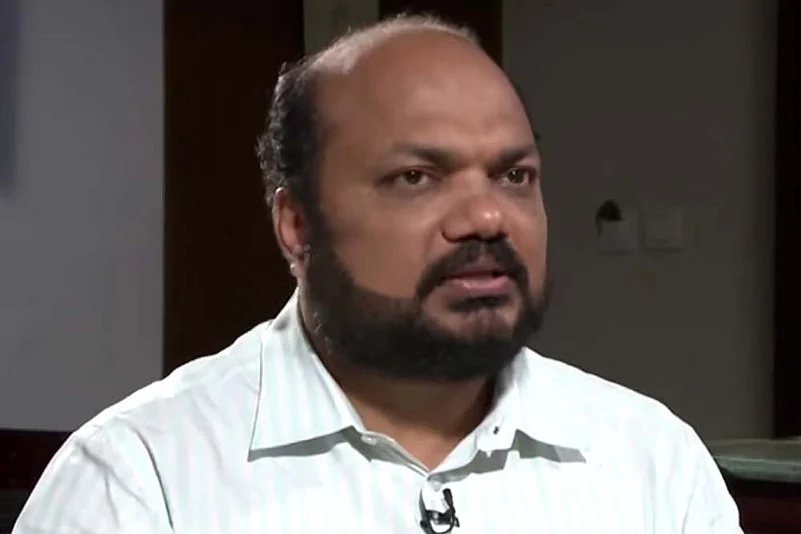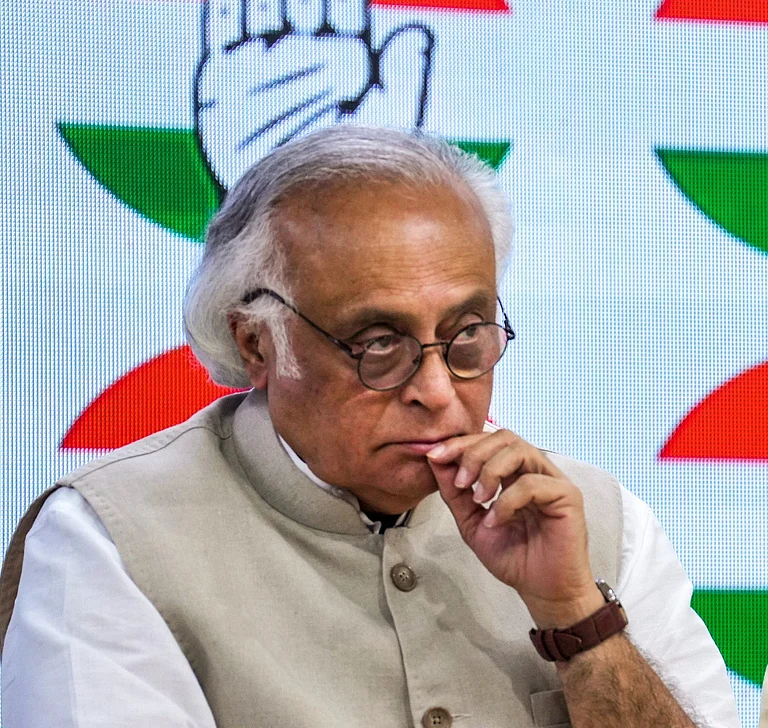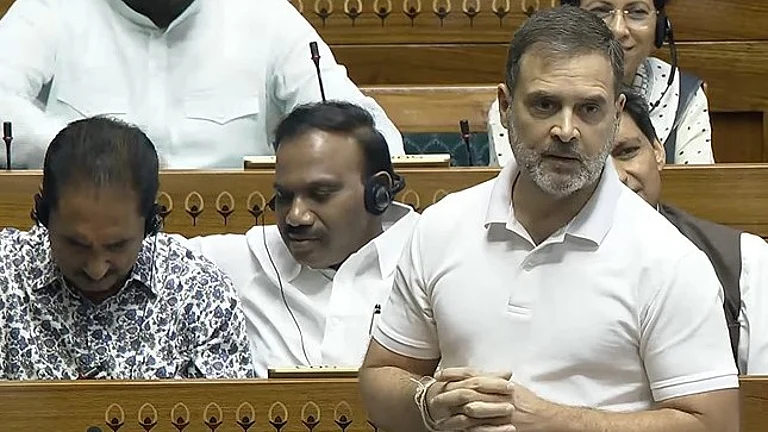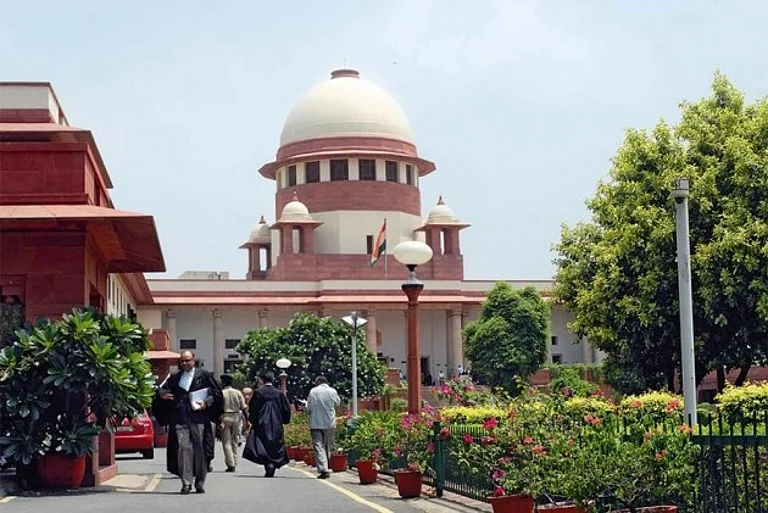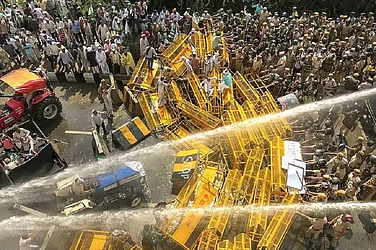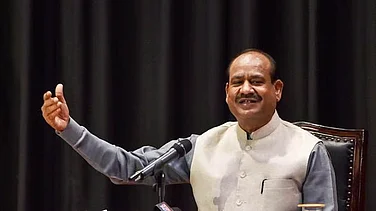After an industrious tenure in the Rajya Sabha as MP (CPM) P Rajeev, 47, has returned home to the post of the party's Ernakulam district secretary. As we attempt to reach him, his nine-year-old daughter warns us over phone that since his retirement he can be contacted only on one number. But when Outlook catches up with him at Lenin Centre, Kochi, he looks anything but retired. He has just returned from couple of agitations and says he is 24* 7 engaged in the issues of the people. Rajeev, who won accolades for exercising his voice in the parliament, sits down to reminisce...
What was your most memorable moment in the RS?
Much before I retired the vice president told me that if he had the power to nominate anyone to the house he would nominate me. That was a memorable moment for me and then on my retirement great legal luminaries like Arun Jaitley remarked on my hard work. I am humbled by these comments. Even in my future activities this makes me want to be more responsible and vigilant and rise to those heights.
What did you learn from your stint in the RS?
My approach is that we can learn from every member of the house. By regularly attending the house you can learn new points and besides that you get enough information from different organisations like farmer's organisations, social organisations etc... who you engage with. From the beginning I started participating in debates and used all the instruments and mechanisms to raise issues. As a new member I was number one in participating in debates.
We have enough instruments and rules in the public domain. We should understand the rules, and find out the proper rule for each and every issue and know how to interpret the rule. I learnt all these things by reading books. The general perception is that the legislative has no power over the rules (subordinate legislation) of any Act. Normally it is the prerogative of the executive. All these rules (of the Act) are laid on the table of the house. In these rules there is a sentence: if it is not objected by the House within the said time it is deemed to be passed. That means there is space for the parliament. But this space for manoeuvre is not mentioned in the parliamentary rules. I utilised this for the first annulment motion in the history of the parliament to annul the IT Act intermediary guidelines rules (2011). I spoke first moving the motion and then Arun Jaitley (then LoP) spoke supporting the motion and he thanked me for educating us on this provision for motion against intermediary rules.
Any other incidents?
During the UPA II, just before the UP election, Sharad Pawar and others wanted the parliament to form the Bundelkhand Agriculture University as an election sop. During one session one of the members was giving a boring and lengthy speech and the chair was trying to curtail him but I got a very good point from there. This gentleman asked: ‘What is the legislative competency of the formulation of a university?' I then went and researched and found that only some universities that were formed before the framing of the constitution were on the Union list, formation of universities were now in the state list and only universities of national importance could be in the union list. But for some reason only after the elections was the Bundlekhand University introduced again, so I gave an objection to the introduction saying it is a state subject. Kapil Sibal argued that several bills had been passed by the house for the incorporation of universities. I argued that ‘you cannot overrule the constitutional provisions by precedence.' Then Jaitley stood up and supported my objection but he gave them a leeway that the house can formulate the Bundlekhand University provided it is of national importance. Thus Bundlekhand Agriculture University had to be made into a national university.
Mr Jaitley has said with you retiring the government's work will be easier. Your comments.
Even if we were only the third largest party, we led the opposition in many debates. What is worrying today is that in the present government under Narendra Modi, the bills are being passed without them being sent to the Standing Committee. In my last session I moved a motion against the Mines and Minerals Bill to the Select committee. Jaitley argued against it but the chair passed my motion. Again a second time I moved a motion to re-send the bill to the Select Committee for I felt that they had not studied the matter well. Again Jaitley who had supported many a motion of mine during the UPA argued against my motion for more than 30 minutes. Again the chair ruled in my favour. But Jaitley's greatness comes across as he gave good comments about me.
You have been able to use your MPLADS very creatively.
I concentrated my fund for health and education. I tried convergence of funds with CSR and the charity of individuals. And I introduced schemes like SUCHI @ School which is a sustainable comprehensive hygiene initiative by providing e-toilets, girl friendly toilets, napkin incinerators. This project bagged a-5-lakh award from the Oommen Chandy government and I utilised this to provide napkin vending machines in girls's schools. With the help of CSR and individual charity we set up the largest public sector dialysis centre with 24 machines that provide free dialysis at Aluva. I was also able to channelise funds to air condition the male and female wards at the cancer centre in the general hospital, Ernakulam. Recently a linear accelerator which costs about 9 crores was installed in the general hospital with the help of my nominated MP friends in the Rajya Sabha. I have adopted the Udyamperoor village for the Sansad Adarsh Gram Yojana but we have to use funds from the MPLADs for this purpose. Even for railway development we are expected to use funds from our MPLADS. Now we are thinking of novel ideas like organic farming and organic living.
What do you plan to do now?
We are busy organising agitation against the Meenakumari report and addressing the issues of the farmers who are the victims of the present government's neo-liberal policies. I have been given ample support from the party leadership for my activities.
There is a perception that the factional in-fighting of the CPM gives you all less time for the issues of the common man.
Ours is a collective leadership and inner party differences will be there in any democratic party. Of late there is less differences within the party and we need to learn our lessons to strengthen our party.
AAP has encroached into traditional community vote-banks like the auto-drivers and slum dwellers?
This may not happen in Kerala or West Bengal. But if there is a vacuum then they will take over that space. We have to learn from the victory of AAP and their methodology and practices. Even their problems are lessons for us.
What are the plans to attract the youth?
We have understood that there cannot be a concrete model for agitations for all issues prevailing in the contemporary world. We need to rethink our propaganda and employ terminology to get across to our real audience, TV audience and the virtual audience. It is very complex and we need to attract youngsters below the age of 25 years.






